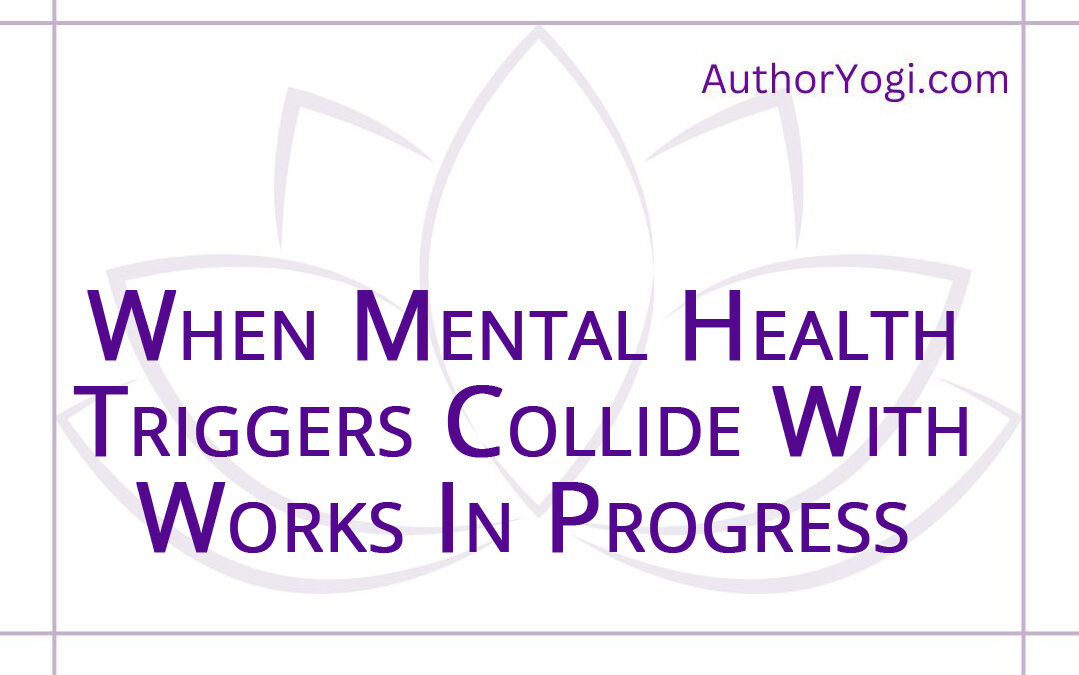As writers we can choose what we write and when we write. So it seems a bit odd that we would write something that triggers our mental health if we didn’t want to. And yet, that’s exactly what happens when life, publishing circumstances, or even the prose itself, comes up against our mental health triggers. For those of us with cPTSD this can happen without our even realizing it.
How does this happen? There are some who would say that this is self-inflicted if we know what bumps up against our triggers and we write it anyway. And yet, the truth is there are times when the story goes in a direction we never intended or when situations happen outside of the actual writing process that cause our writing to trigger cPTSD.
I had this happen to me recently, and I know I’m not alone in this. So let’s look at some reasons why it happens.
First, in my case, it was a confluence of events. I had returned to a genre that I’d burnt out on once before (due to a misguided belief that it made me more money, which I’ll talk about in more detail below), political changes meant that it possibly could be dangerous to write what I was writing (getting “in trouble” is a big trigger for me), and some publisher things were happening that again stomped on some old wounds. The truth is, if you take away those external situations, I was getting burnt out on the genre again. As someone with a neurodivergent brain (AuDHD), I have to be really interested in what I’m writing, and as fun as the writing was, it was starting to become decidedly NOT FUN. Add in the external factors, and the brain said no.
The tipping point was that my nightly cPTSD vivid dreams (nightmares?) in which I’m back into the situations which caused the trauma started to feature the publishing situation. That is a huge red flag for me, and since I remember my dreams, I woke up and went, yeah, that’s a sign. Or as I like to call it a big “clue-by-four” from the universe.
What do you do?
When you realize that mental health triggers have collided with your writing, what do you do? First, I sought out empirical evidence. I’d returned to the genre because I believed it was how I made my money. Thanks to the magic of BookReport (an app I love by the way!) I began running some reports. In fact, I reached out to their support and they helped me generate even more useful reports that told the truth in dollars and cents. I hadn’t made more money with that genre.
Frankly for me that was enough. I’m making yet another pivot to ensure that my writing feeds my soul and my pocketbook, though that will be a long slog as I work to rebuild what I had say around 2020 or 2021.
But what if you find out that it is making you money or for other reasons you can’t pivot?
Then you have to make some decisions. First, if you’re dealing with cPTSD, trauma, or mental health concerns I strongly urge you to reach out to a professional. I also need to take a moment and recognize that for many of us it isn’t easy to find an affirming professional. It took me probably close to 25 years to find a therapist who understood me, and my brain, and that was after receiving my neurodivergent diagnosis at 47. So there are a lot of barriers in the way, not just the financial ones we have here in America.
Secondly, return to your creative nervous system. Find ways to make the writing work for you, feed your spirit, and reduce the stress. That may mean working with a holistic book coach such as myself or it may mean finding other things that help soothe and regulate the nervous system. It also could mean switching projects, changing points of view, or even just taking a break.
None of these will be quick fixes, but each one will be a step that will help.
The third and final thing is to not be afraid to recognize when something needs to change. The truth is the only thing that’s a constant in the publishing industry, and really in life in general, is change. This business is too difficult to keep doing what doesn’t work or what makes us miserable.
When writing collides with mental health triggers, it’s a sign to take some time to think about the situation, to really dig into what you want to get out of writing and what you want moving forward. It’s a warning light on your writing dashboard that we need to check into things. Then, not be afraid to take the steps necessary to create change.

